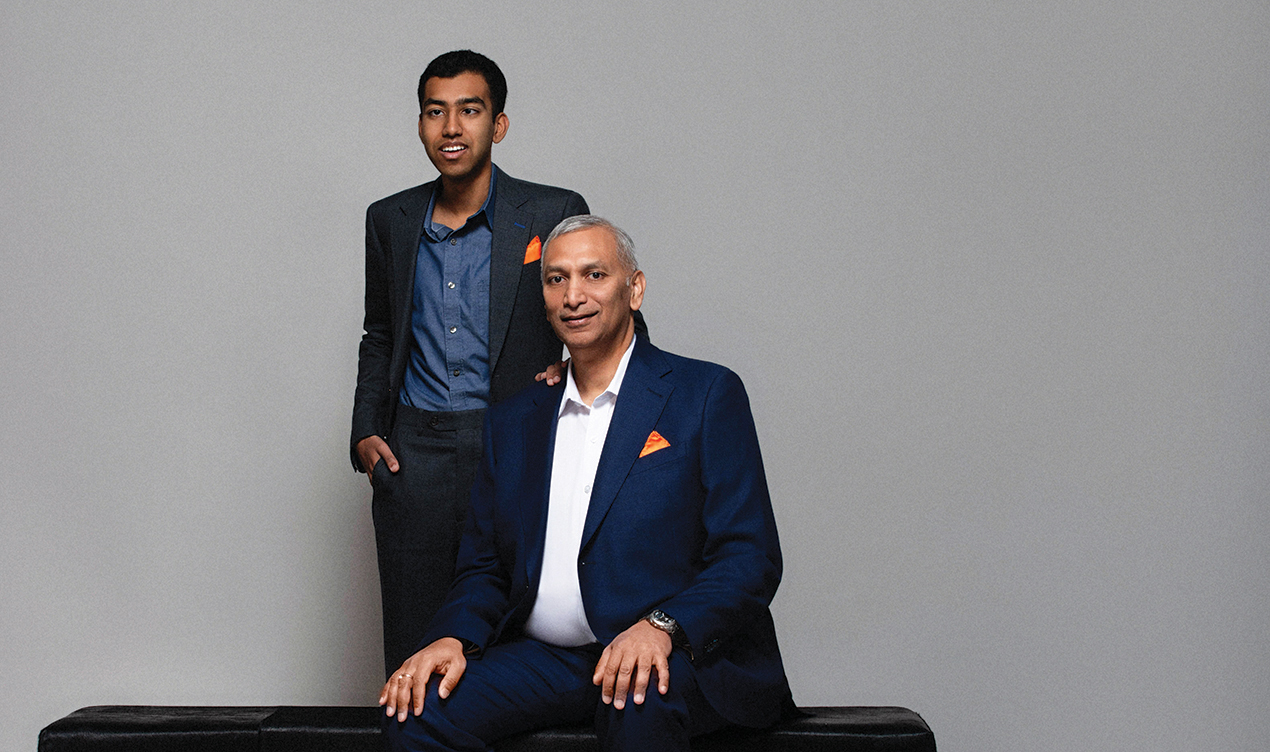Amit Ramlall and his father, Kumar, display their symbiotic relationship through a white card. With his father’s hand on his wrist, Amit touches the letters on the card and his father pulls his hand away. From those motions, Kumar interprets what his autistic son is trying to say — and verbalizes them.
Amit quotes from famous thinkers and authors as if he had a textbook in front of him. The claim is that he’s read over 14,000 books — he’s currently 21. He plays podcasts at double speed.
And he uses that intellect, along with his dad, to help consult business leaders about their life goals. The Chintan Project offers coaching that goes a lot deeper than dollars and cents.
“Each of us has something that is pulling us forward, and that can help us withstand the greatest challenges, and endure pleasure and pain,” Amit says through his father. “We help clients connect with that part of their lives and businesses.”
The Chintan Project is focused on helping buyers (or sellers) go through the processes of mergers and acquisitions. They’ve worked with sellers who need to restructure their businesses before they sell; there are those who are so emotionally connected to the businesses they’ve created, they’ve overvalued them; there are times when the buyer is too attached to a potential acquisition; there’s even the story of a family member who inherits a business he, she or they doesn’t want.
And helping those people see their purposes in life can help.
“We have to acknowledge that each of us is here for a purpose, a unique purpose and reason for being,” types Amit.
Amit looks to be mouthing along to some of the words his dad says. For visual proof of this, watch the episode of the Growing Your Business with People podcast that features the Ramlalls as guests (“Leadership Myths Debunked: It’s Personal, Not Just Business”). Amit is active in the conversation, he makes eye contact with the host.
But, they have heard accusations that their communication method, using the card, is a sideshow.
